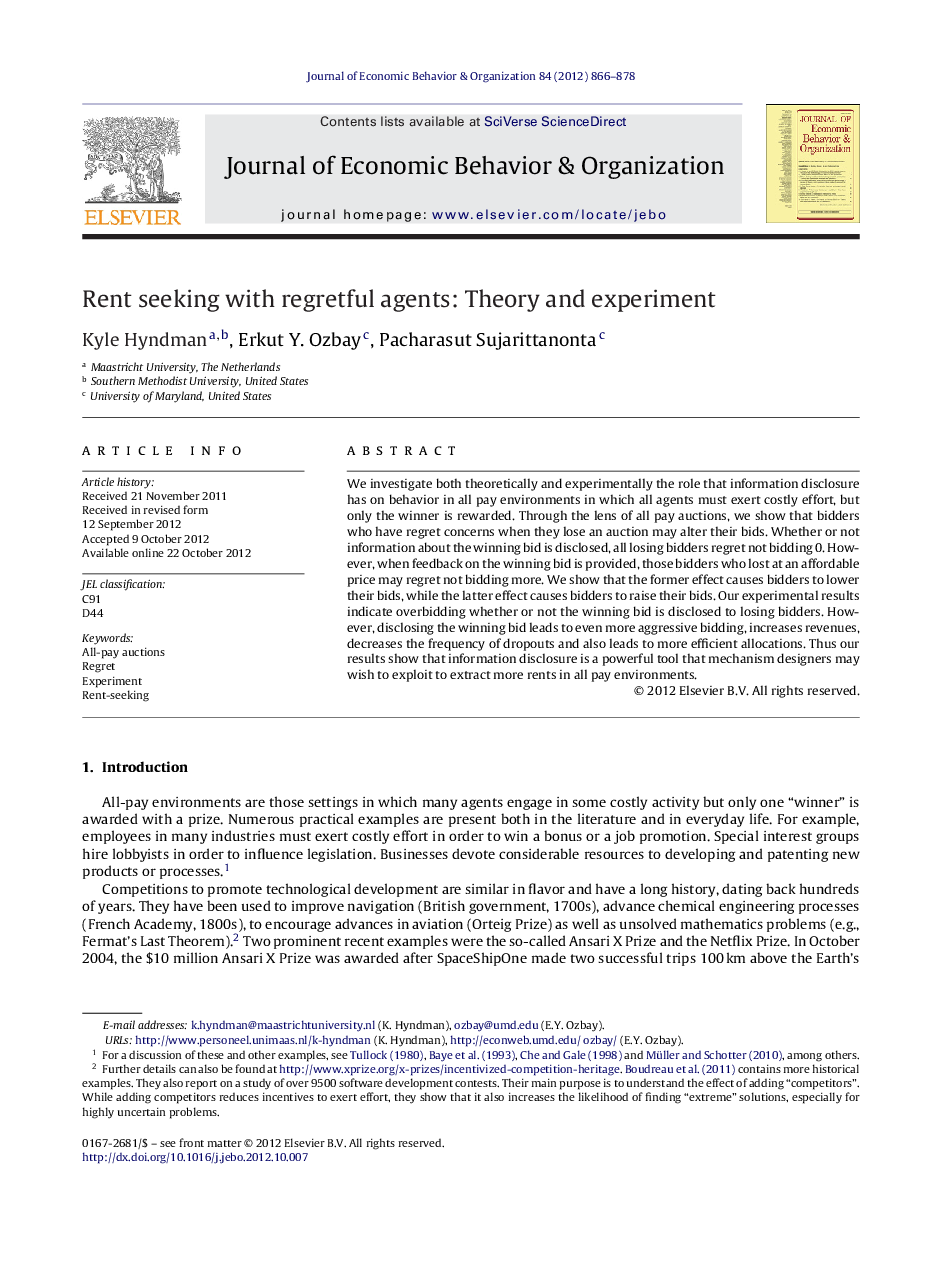| Article ID | Journal | Published Year | Pages | File Type |
|---|---|---|---|---|
| 883842 | Journal of Economic Behavior & Organization | 2012 | 13 Pages |
We investigate both theoretically and experimentally the role that information disclosure has on behavior in all pay environments in which all agents must exert costly effort, but only the winner is rewarded. Through the lens of all pay auctions, we show that bidders who have regret concerns when they lose an auction may alter their bids. Whether or not information about the winning bid is disclosed, all losing bidders regret not bidding 0. However, when feedback on the winning bid is provided, those bidders who lost at an affordable price may regret not bidding more. We show that the former effect causes bidders to lower their bids, while the latter effect causes bidders to raise their bids. Our experimental results indicate overbidding whether or not the winning bid is disclosed to losing bidders. However, disclosing the winning bid leads to even more aggressive bidding, increases revenues, decreases the frequency of dropouts and also leads to more efficient allocations. Thus our results show that information disclosure is a powerful tool that mechanism designers may wish to exploit to extract more rents in all pay environments.
► We study a model of rent-seeking behavior where agents may be regretful. ► Using the framework of all-pay auctions, we show characterize equilibrium behavior. ► In an experiment, we vary the feedback about the winning bid and study behavior. ► Consistent with theory, subjects bid higher with feedback on the winning bid. ► Women perform worse than men but in a different way from previous results.
